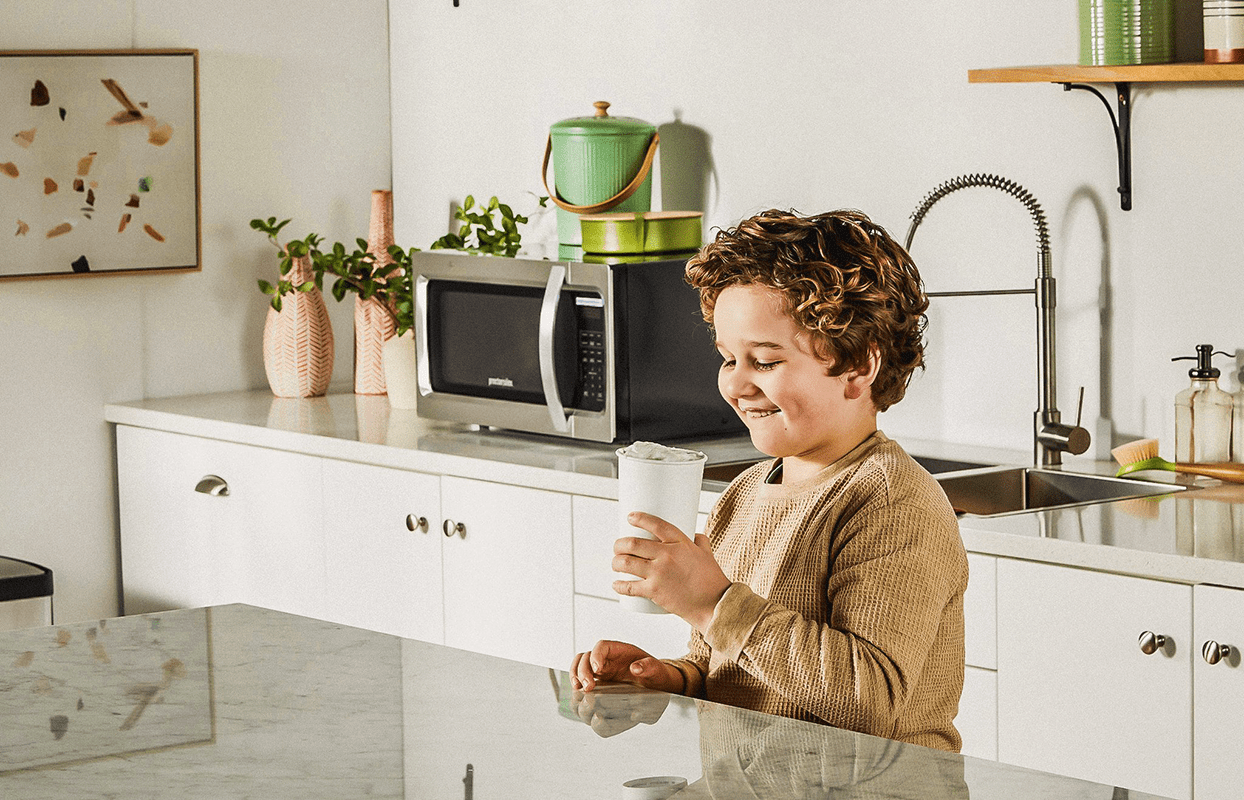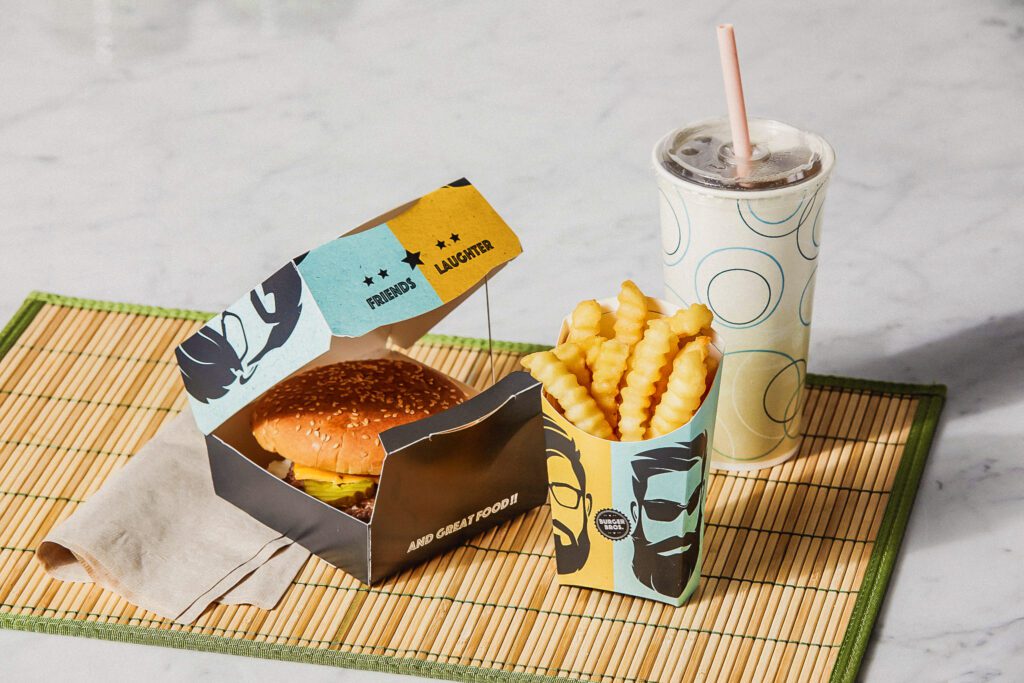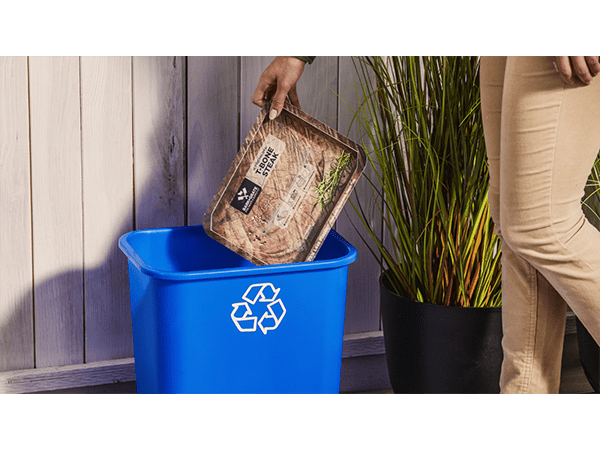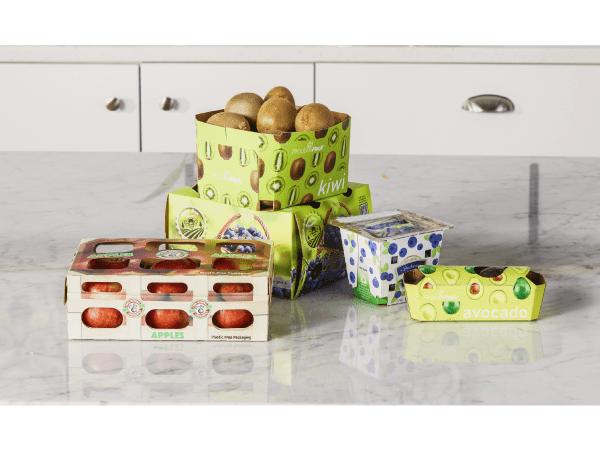article
Les gobelets en papier peuvent transformer les eaux agitées en un océan d’occasions pour les acteurs canadiens du secteur de la restauration rapide

Sur le marché actuel de la restauration rapide (Quick Service Restaurant, QSR), chaque boisson servie dans un gobelet en plastique s’accompagne d’une part d’incertitude.
Malgré l’interdiction fédérale canadienne des plastiques à usage unique, qui a été renversée en appel au moment de la rédaction du présent document, des villes et municipalités comme Montréal et Banff montrent que les restrictions municipales sur les plastiques à usage unique sont de plus en plus nombreuses dans le pays.
De plus, le sentiment des consommateurs à l’égard du plastique et l’inquiétude croissante concernant les faibles taux de recyclage du plastique se combinent pour créer des risques potentiels pour les entreprises qui utilisent des gobelets en plastique. Mais là où il y a un risque, il y a aussi une occasion. C’est une occasion que les marques de restauration rapide peuvent saisir en proposant des gobelets fabriqués principalement à partir de matières renouvelables qui répondent aux préférences des consommateurs et aux exigences des législateurs, tout en préservant les ressources naturelles de notre planète.
Tribulation de la législation
Au cours des dernières décennies, la production de plastique a augmenté plus rapidement que celle de tout autre matériau, grâce à sa légèreté, sa durabilité et son faible coût. La plupart des trois millions de tonnes de plastique que les Canadiens jettent finissent dans les décharges, et environ 29 000 tonnes se retrouvent dans notre environnement naturel. Malgré le fait que plus de 60 % des Canadiens ont accès à un système de recyclage du plastique, seulement 9 % environ de celui-ci est recyclé.
Ces faits ont incité le gouvernement canadien à agir. Finalisé en juin 2022, le Règlement sur l’interdiction des plastiques à usage unique (Single-use Plastics Prohibition Regulations, SUPPR) est un plan d’ensemble exhaustif visant à interdire les plastiques à usage unique. Le Règlement cible six catégories de plastiques problématiques, notamment les contenants alimentaires comme les gobelets. Les premières mesures de ce nouveau Règlement sont entrées en vigueur en décembre 2022. Même si l’interdiction a été renversée par la Cour fédérale en novembre 2023, elle reste en vigueur jusqu’à ce que l’issue de l’appel du gouvernement soit résolue.
Cette situation est encore plus complexe si l’on tient compte des restrictions municipales sur le plastique. Elles peuvent varier selon la ville et même selon la municipalité. Par exemple, Toronto a mis en œuvre une approche « sur demande » pour les articles en plastique à usage unique, tandis que les acteurs du secteur de la restauration rapide doivent permettre aux consommateurs d’utiliser des gobelets à boissons rechargeables, s’ils le souhaitent. La Colombie-Britannique, pour sa part, a interdit de nombreux types différents de gobelets en plastique.
Cette situation pose problème pour les acteurs du secteur de la restauration rapide, en particulier pour les chaînes de restaurants. Les chaînes s’appuient sur des processus harmonisés pour garantir aux consommateurs une expérience uniforme dans chaque restaurant. L’incertitude entourant les gobelets en plastique entraîne de fortes perturbations chez les acteurs du secteur de la restauration rapide qui les utilisent. Parfois, le choix évident est le bon, et la législation nous pousse dans la bonne direction. Les acteurs du secteur de la restauration rapide qui utilisent du plastique doivent désormais se conformer à ce Règlement, mais d’autres options s’offrent à eux.
Les consommateurs veulent des emballages durables et performants
Alors que l’avenir du Règlement sur les plastiques à usage unique n’a pas encore été décidé par les tribunaux, le tribunal de l’opinion publique a déjà rendu son verdict.
Plus de 90 % des consommateurs canadiens sont préoccupés par l’impact des emballages alimentaires sur l’environnement, et plus de la moitié sont préoccupés par l’utilisation du plastique. Par ailleurs, environ 50 % des personnes interrogées estiment que les valeurs d’une marque sont importantes et deux tiers opteraient pour une marque qu’elles perçoivent comme plus soucieuse du développement durable, si le prix et la qualité étaient identiques.
Le carton plat est le matériau le mieux placé pour répondre à ces besoins. Le taux d’accès au recyclage est élevé au Canada : 96 % et presque 70 % de tout le papier, le carton plat et le carton blanchi sont recyclés avec succès.
Mais bien sûr, tout n’est pas qu’une question de développement durable. Les gobelets en papier doivent également offrir une excellente expérience à l’utilisateur. Une étude menée par le Shelton Group a révélé que la grande majorité des consommateurs interrogés préfèrent les avantages isolants qu’offrent les gobelets en papier, protégeant ainsi leurs mains et les surfaces de la condensation et gardant leur boisson froide plus longtemps. Seuls 11 % des consommateurs ont estimé qu’il était important de voir leur boisson à travers un gobelet en plastique transparent. Lorsqu’on leur a demandé d’évaluer le rendement d’un gobelet en papier sur plusieurs critères, les consommateurs ont répondu avec enthousiasme. En ce qui concerne la « sensation agréable en bouche lors de la dégustation », 88 % des consommateurs ont dit que les gobelets en papier pour boissons froides étaient « excellents » ou « bons », ce chiffre atteignant 93 % pour les gobelets pour boissons chaudes. De plus, pour l’attribut « n’a pas d’impact sur le goût de la boisson dans le gobelet », 84 % ont répondu « excellent » ou « super » pour les gobelets pour boissons froides, passant à 95 % pour les gobelets pour boissons chaudes.
Les consommateurs ne devraient pas avoir à choisir entre profiter d’une boisson froide rafraîchissante et leur désir de minimiser leur impact sur l’environnement. Lorsque cette boisson est servie dans un gobelet en papier, ils n’ont pas besoin de le faire.
Les gobelets en papier sont un choix évident pour les acteurs du secteur de la restauration rapide qui cherchent à optimiser leurs stratégies de croissance et à minimiser les risques. Les consommateurs canadiens sont prêts à faire la transition. Les législateurs canadiens tentent de faire la transition. Il ne reste plus qu’aux entreprises de restauration rapide de montrer qu’elles sont à l’écoute.




